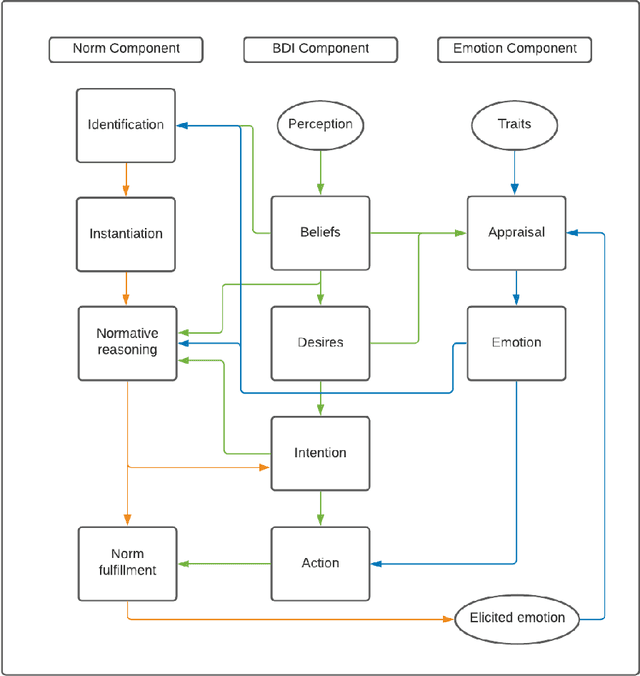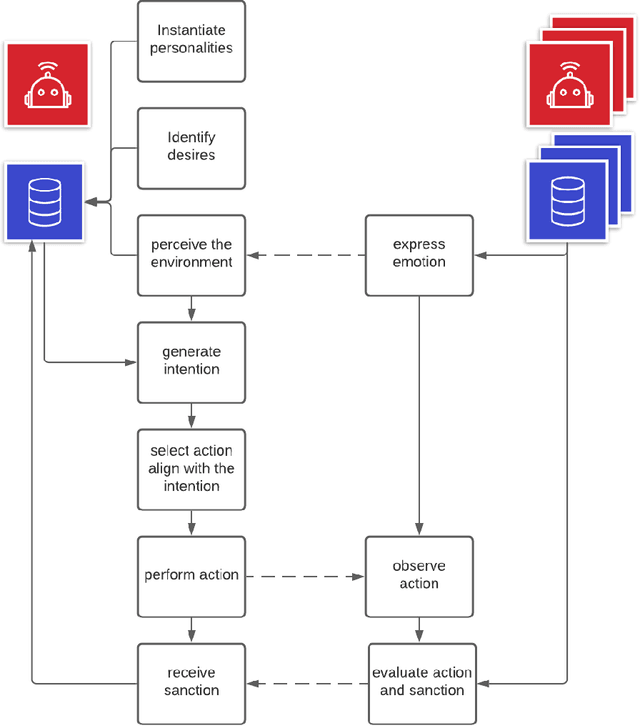Noe: Norms Emergence and Robustness Based on Emotions in Multiagent Systems
Paper and Code
Apr 30, 2021



Social norms characterize collective and acceptable group conducts in human society. Furthermore, some social norms emerge from interactions of agents or humans. To achieve agent autonomy and make norm satisfaction explainable, we include emotions into the normative reasoning process, which evaluate whether to comply or violate a norm. Specifically, before selecting an action to execute, an agent observes the environment and infer the state and consequences with its internal states after norm satisfaction or violation of a social norm. Both norm satisfaction and violation provoke further emotions, and the subsequent emotions affect norm enforcement. This paper investigates how modeling emotions affect the emergence and robustness of social norms via social simulation experiments. We find that an ability in agents to consider emotional responses to the outcomes of norm satisfaction and violation (1) promote norm compliance; and (2) improve societal welfare.
 Add to Chrome
Add to Chrome Add to Firefox
Add to Firefox Add to Edge
Add to Edge